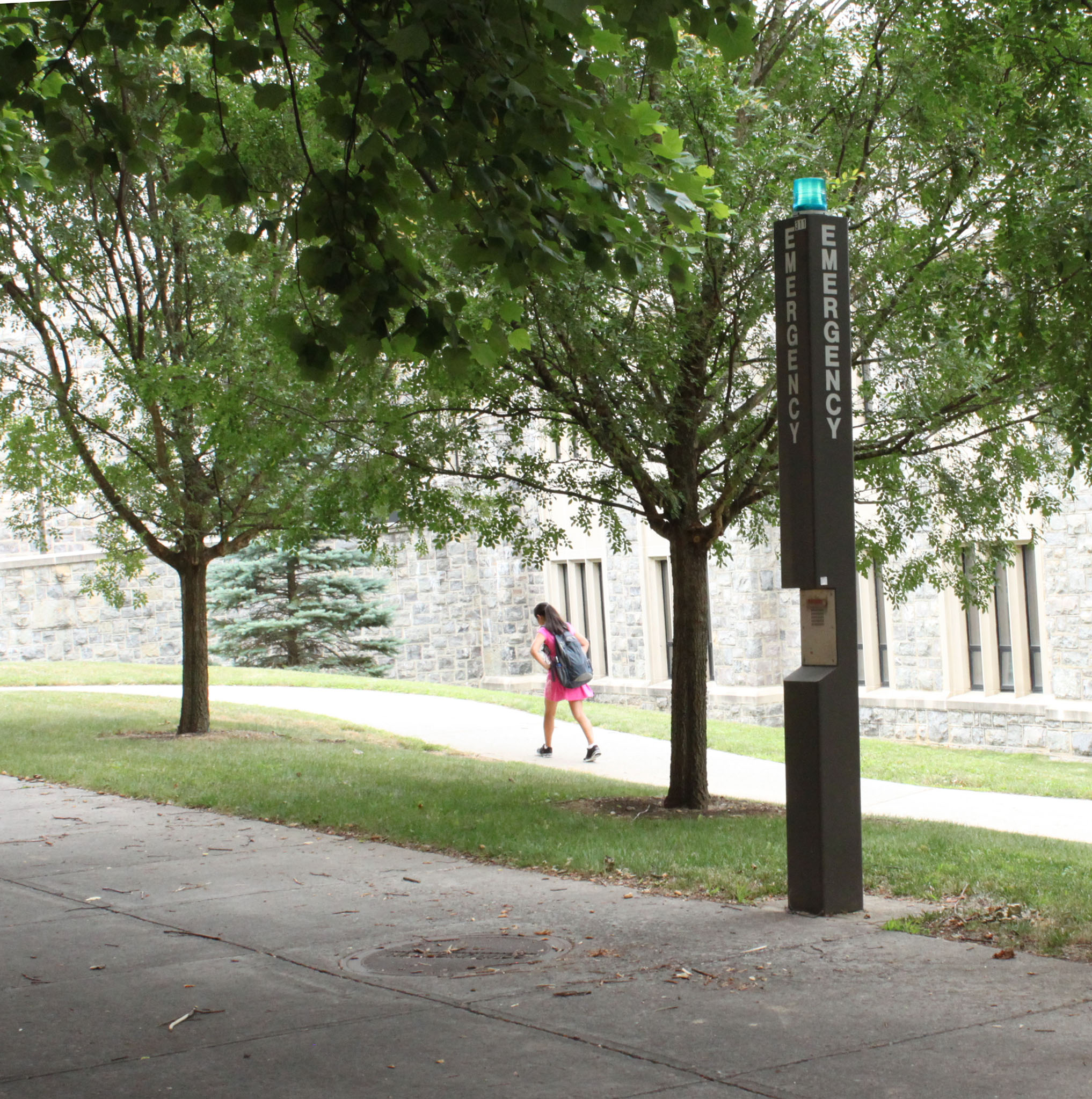Unified communications team maintains telephone communications, mitigates loss of service from power outages

Unified communications project managers and engineers are working with the Office of Emergency Management and the Virginia Tech Police Department to maintain “high availability” telephone service throughout the campus, even in the event of a power outage.
The university’s legacy telephones — the familiar digital ROLM phone models (120, 200, 400), along with analog lines for fax machines, modems, or blue-light telephones — would be mostly unaffected by commercial power outages. These phones receive their power from a few centralized power sources that are backed up by both battery and generator systems.
The new unified communications system will also support digital and analog telephones, and these phones will have the same resiliency to commercial power outages as their predecessors. However, Internet protocol telephones will be the more common replacements. IP telephones provide significant advantages in display and audio quality, as well as in application and feature support over digital telephones. IP telephones receive their power from many distributed power sources that are generally not supported by either battery or generator systems. Therefore, they are susceptible to service interruptions caused by commercial power outages.
To minimize impacts to the university's emergency management, public safety, and continuity of operations initiatives, unified communications project managers and engineers are working with the Office of Emergency Management and the Virginia Tech Police Department to develop standards for “high availability” telephone service coverage throughout the campus. As your building converts to the new system, unified communications personnel will discuss any specific needs that your department may have for high availability lines that can protect against failure during power outages.
The Blacksburg central campus has rarely been impacted by extended power outages. John Beach, director for strategic initiatives in facilities services, recalls few significant outages: a seven-hour campus-wide outage during spring break 1994, due to an ice storm; and a less-extensive 20-hour outage in 2004, related to a water-main break in a switching station.
Joe Hutson, director for voice and mobile technologies and unified communications project leader, noted that the reliability of campus power, along with the several million dollar price of backing up power for all IP phones, were major factors in the design of the new system.
Unified communications is Virginia Tech's multi-year program to connect the university community via new and emerging communications technologies. Unified communications will allow the integration of real-time communications services including telephony, instant messaging, chat, and desktop video conferencing with asynchronous communications such as email, voicemail, and fax. The program is directed by Network Infrastructure and Services, a division of Information Technology.
This article was written by Susan Brooker-Gross, director for policy and communications for Information Technology.



.jpg.transform/m-medium/image.jpg)
